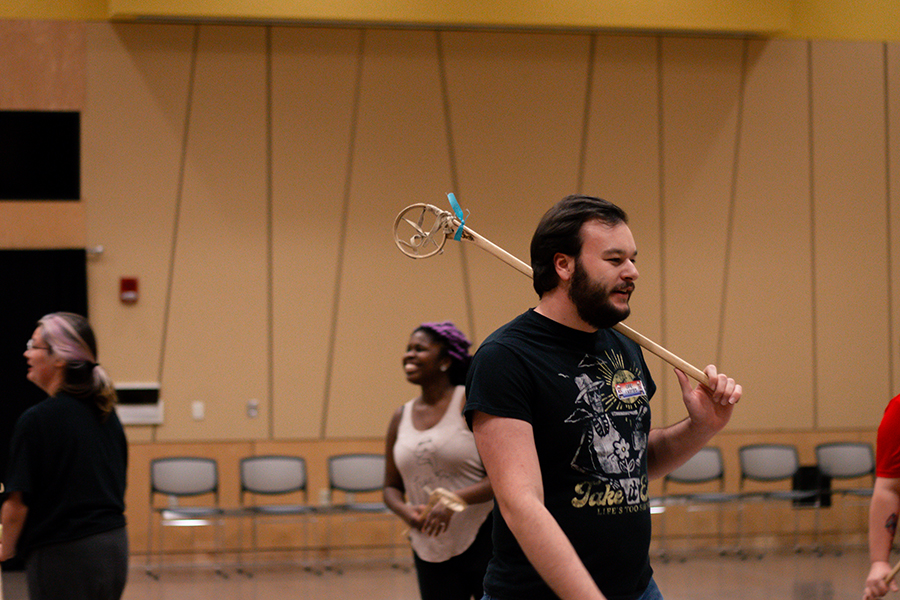TYPE
When starting a game of traditional lacrosse, it is custom to yell and let the universe know that the game is starting. In Ojibwe the word is “Zaasaakwe” [Zaa-saak-way], meaning to shout.
In November, the University of Wisconsin-Superior’s Indigenous Cultures Resource Center (ICRC), in conjunction with the Native Nations Student Organization (NNSO,) held their fourth annual Ojibwe Game Night.
Participants of the event learned the cultural significance of multiple traditional Ojibwe games. Over the course of the event, UWS students and community members had a chance to observe the moccasin game and play traditional lacrosse.
The moccasin game takes place on a blanket set with a collection of moccasins and marbles. It is a betting game in which the marble is concealed under a moccasin by one player. Then, while the drum is played, the other player must guess which moccasin conceals the marble.
Typically played by men, the moccasin game works as a form of bonding and healing. Former president of NNSO and social studies student Dillion Krisik reflected on this purpose.
“The game teaches patience and teamwork, it heals us through that,” said Krisik.
A crowd favorite of the night was the lacrosse game. UW-Superior students, faculty and community members learned lacrosse using traditionally made lacrosse sticks.
Lacrosse has been played by surrounding tribes for centuries. The game is believed to be a gift from the creator. Because of this, lacrosse is often called the “creator’s game.” Playing lacrosse both honors the creator and strengthens the bond between the community.
Krisik taught participants multiple techniques. Players were taught the ways to scoop, swing, pass and launch the ball in an attempt to score on the opposing team’s goal.
The ICRC and NNSO plan to continue this event in the coming years. Honoring Native American tradition through fun hands-on experience remains an important aim of the organizations.
By Olivia Fleming, English major and student writer for UWS.
